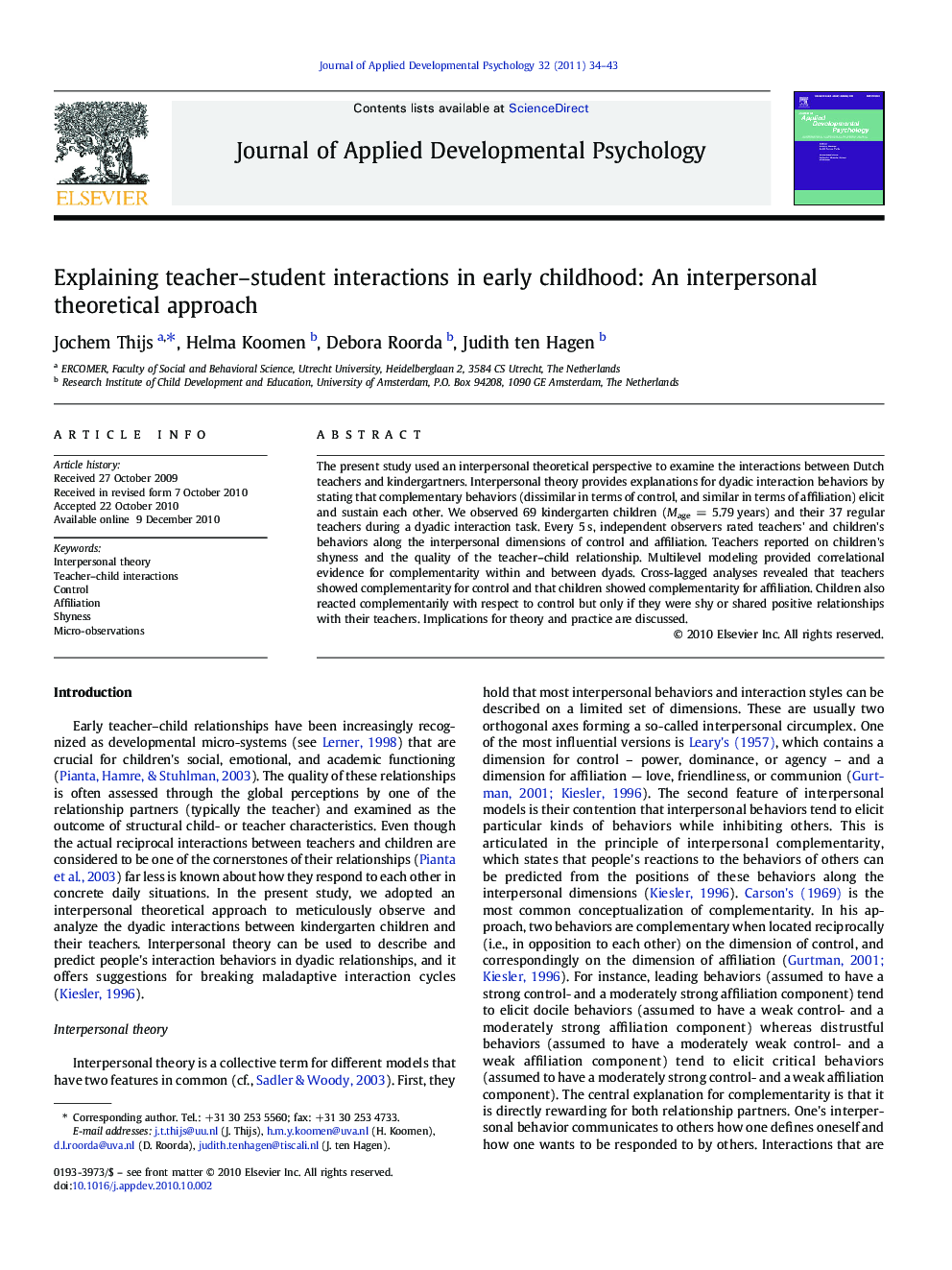| Article ID | Journal | Published Year | Pages | File Type |
|---|---|---|---|---|
| 359774 | Journal of Applied Developmental Psychology | 2011 | 10 Pages |
The present study used an interpersonal theoretical perspective to examine the interactions between Dutch teachers and kindergartners. Interpersonal theory provides explanations for dyadic interaction behaviors by stating that complementary behaviors (dissimilar in terms of control, and similar in terms of affiliation) elicit and sustain each other. We observed 69 kindergarten children (Mage = 5.79 years) and their 37 regular teachers during a dyadic interaction task. Every 5 s, independent observers rated teachers' and children's behaviors along the interpersonal dimensions of control and affiliation. Teachers reported on children's shyness and the quality of the teacher–child relationship. Multilevel modeling provided correlational evidence for complementarity within and between dyads. Cross-lagged analyses revealed that teachers showed complementarity for control and that children showed complementarity for affiliation. Children also reacted complementarily with respect to control but only if they were shy or shared positive relationships with their teachers. Implications for theory and practice are discussed.
Research Highlights► Young children and their teachers interact in line with predictions of interpersonal theory. ► Interpersonal responses differ for teachers and children. ► Interpersonal complementarity is moderated by shyness and relationship perceptions.
